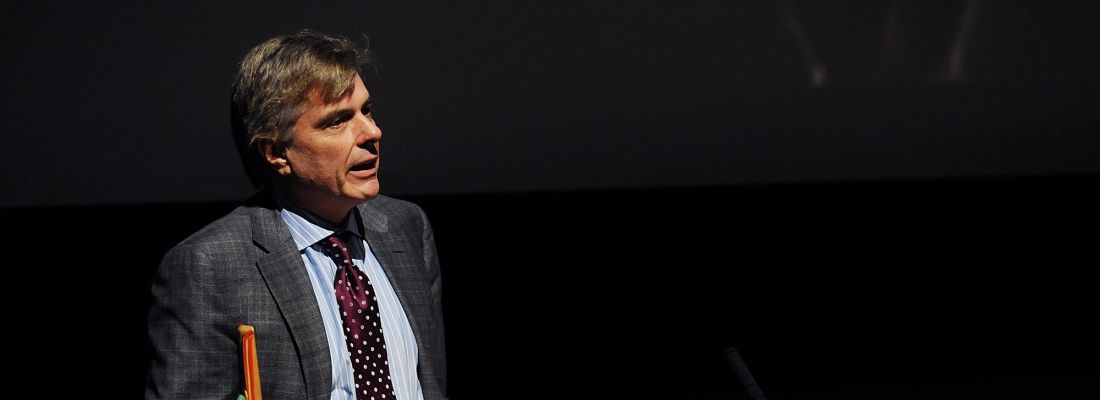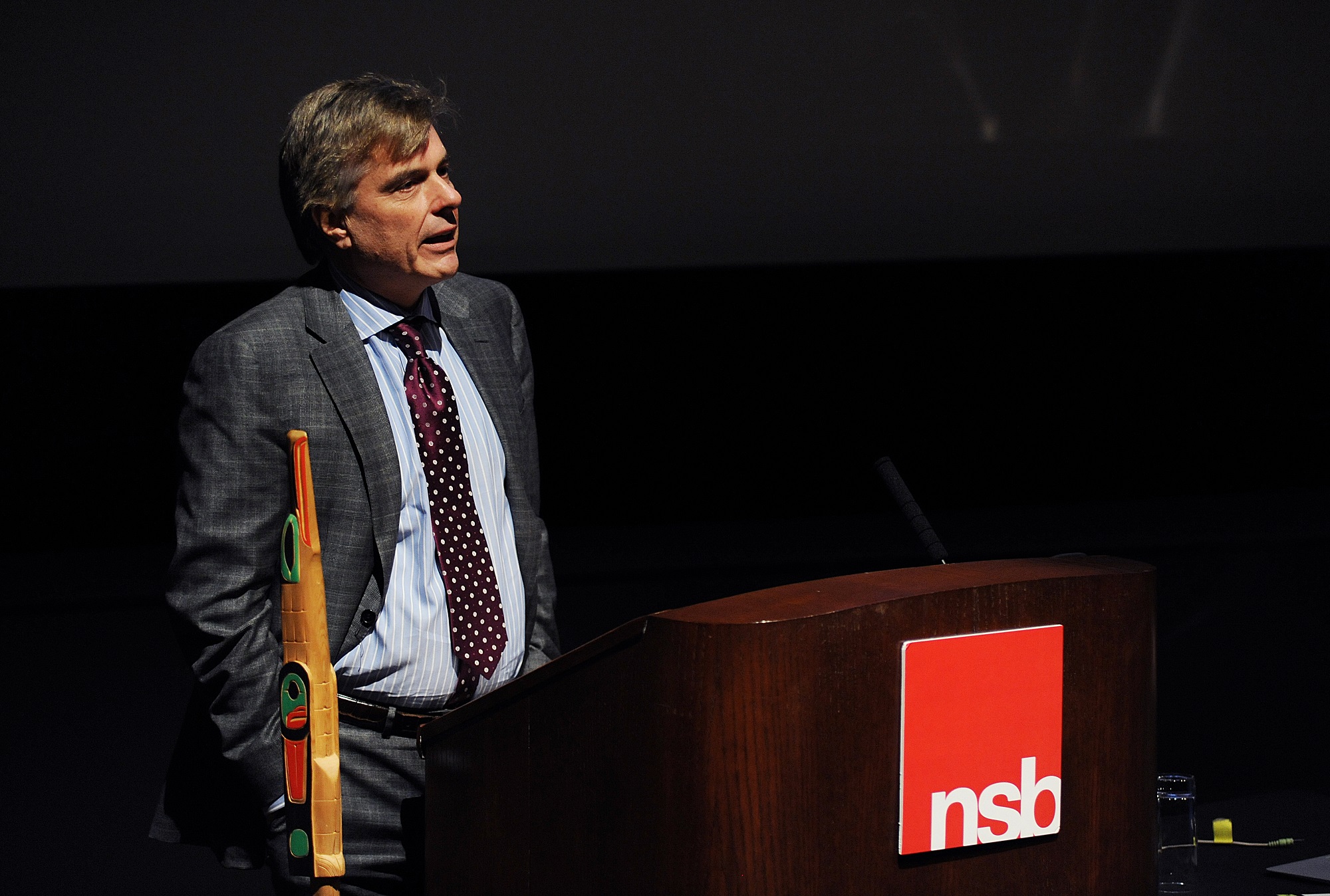Keynote Speeches
The world is on the brink of dramatic change. Economist Jeff Rubin warns that the inflationary spike of 2021 was just the leading edge of converging global crises—from supply chain disruptions to rising nationalism—that will reshape our economies and societies.
As Rubin argues, the massive government spending during COVID-19 has set the stage for runaway inflation. Central banks are losing control of interest rates, unable to rein in price increases as they’ve done in the past. This is the first gust of the coming storm.
At the same time, the pandemic exposed the vulnerabilities of our interconnected global supply chains. Shortages and logjams in the movement of goods hint at a reversal of globalization. Wars and shifting alliances threaten to fragment access to markets and redraw trading patterns. The Russia-Ukraine conflict has accelerated a division between East and West, while Saudi Arabia grows closer to rivals like China and Russia.
Most alarming is the growing instability of the US dollar, the pillar of global finance. With it comes intensifying competition over scarce resources, especially oil and gas. The emergence of a Eurasian bloc spanning from Moscow to Beijing and Tehran underscores the life-or-death stakes of energy security.
As Rubin makes clear, COVID-19 was merely the beginning. The aftershocks will cascade through coming years in the form of trade wars, kinetic wars, and financial turmoil. The new normal will likely be defined by scarcity, nationalism, and realignment. For governments, businesses, and individuals, both challenges and opportunities lie ahead as the tremors reshape our world.
Throughout history sanctions have had a way of creating unintended consequences. Will the same be true of those imposed on Russia for its invasion of Ukraine? President Biden has called them the most crippling sanctions ever imposed against a country.
What do those consequences hold for Canada, one of the world’s largest producers of oil, natural gas, wheat and fertilizer to name but a few of the commodities that have been targeted. And what implications do they pose for inflation already well within the sights of central banks in Canada and the United States?
For a unique and insightful perspective on these and other pressing economic and financial issues that you won’t read in the Globe and Mail or watch on CBC book award winning author and former chief economist Jeff Rubin for a keynote address at your next conference.
Jeff Rubin provides a provocative, far-reaching account of how the middle class got stuck with the bill for globalization, and how the blowback–from Brexit to Trump to populist Europe–will change the developed world.
Real wages in North America have not risen since the 1970s. Union membership has collapsed. Full-time employment is beginning to look like a quaint idea from the distant past. If it seems that the middle class is in retreat around the developed world, it is.
Former CIBC World Markets Chief Economist Jeff Rubin argues that all this was foreseeable back when Canada, the United States and Mexico first started talking free trade. Labour argued then that manufacturing jobs would move to Mexico. Free-trade advocates disagreed. Today, Canadian and American factories sit idle. More steel is used to make bottlecaps than cars. Meanwhile, Mexico has become one of the world’s biggest automotive exporters. And it’s not just NAFTA. Cheap oil, low interest rates, global deregulation and tax policies that benefit the rich all have the same effect: the erosion of the middle class.
Growing global inequality is a problem of our own making, Rubin argues. And solving it won’t be easy if we draw on the same ideas about capital and labour, right and left, that led us to this cliff. Articulating a vision that dovetails with the ideas of both Naomi Klein and Donald Trump, The Expendables is an exhilaratingly fresh perspective that is at once humane and irascible, fearless and rigorous, and most importantly, timely. GDP is growing, the stock market is up and unemployment is down, but the surprise of the book is that even the good news is good for only one percent of us.
Jeff Rubin is certain that the world’s governments are getting it wrong. Instead of moving us toward economic recovery, measures being taken around the globe right now are digging us into a deeper hole. Both politicians and economists are missing the fact that the real engine of economic growth has always been cheap, abundant fuel and resources. But that era is over. The end of cheap oil, Rubin argues, signals the end of growth–and the end of easy answers to renewing prosperity. Rubin’s own equation is clear: with China and India sucking up the lion’s share of the world’s ever more limited resources, the rest of us will have to make do with less. But is this all bad? Can less actually be more? Rubin points out that there is no research to show that people living in countries with hard-charging economies are happier, and plenty of research to show that some of the most contented people on the planet live in places with no-growth or slow-growth GDPs. But it doesn’t matter whether it’s bad or good, it’s the new reality: our world is not only about to get smaller, our day-to-day lives are about to be a whole lot different.
Jeff Rubin’s work has often been the subject of national headlines and has been instrumental in raising key issues to the national spotlight. His many calls on the economy and financial markets, particularly with regard to interest rates and the Canadian dollar, earned him 10 number one rankings in either the Brendan Woods annual survey of institutional equity or fixed income investors. The largest fund managers in North America, Europe and the Far East value his expertise, which he now shares with audiences world-wide.
What do subprime mortgages, Atlantic salmon, SUVs and globalization have in common? They all depend on cheap oil. And in a world of dwindling oil supplies and steadily mounting demand around the world, oil will never be cheap again. In his award-winning book, Why Your World Is About to Get a Whole Lot Smaller: Oil and the End of Globalization, renowned economist and energy expert Jeff Rubin explains how skyrocketing oil prices (not subprime lending) caused the recession, and why the rising cost of oil will reverse globalization. Interest rates, carbon trading, inflation, farmer’s markets, and the wave of trade protectionism washing up all over the world in the wake of various economic stimulus and bailout packages – it all hinges on the new reality of a world where demand for oil eventually outstrips supply. Whether we like it or not, our world is about to get a whole lot smaller.
Rubin discusses the future of the transportation and logistics sectors in an energy-constrained, low-carbon world, and addresses the long-term market trends key to ensuring sustainable positioning.









Similar
Speakers